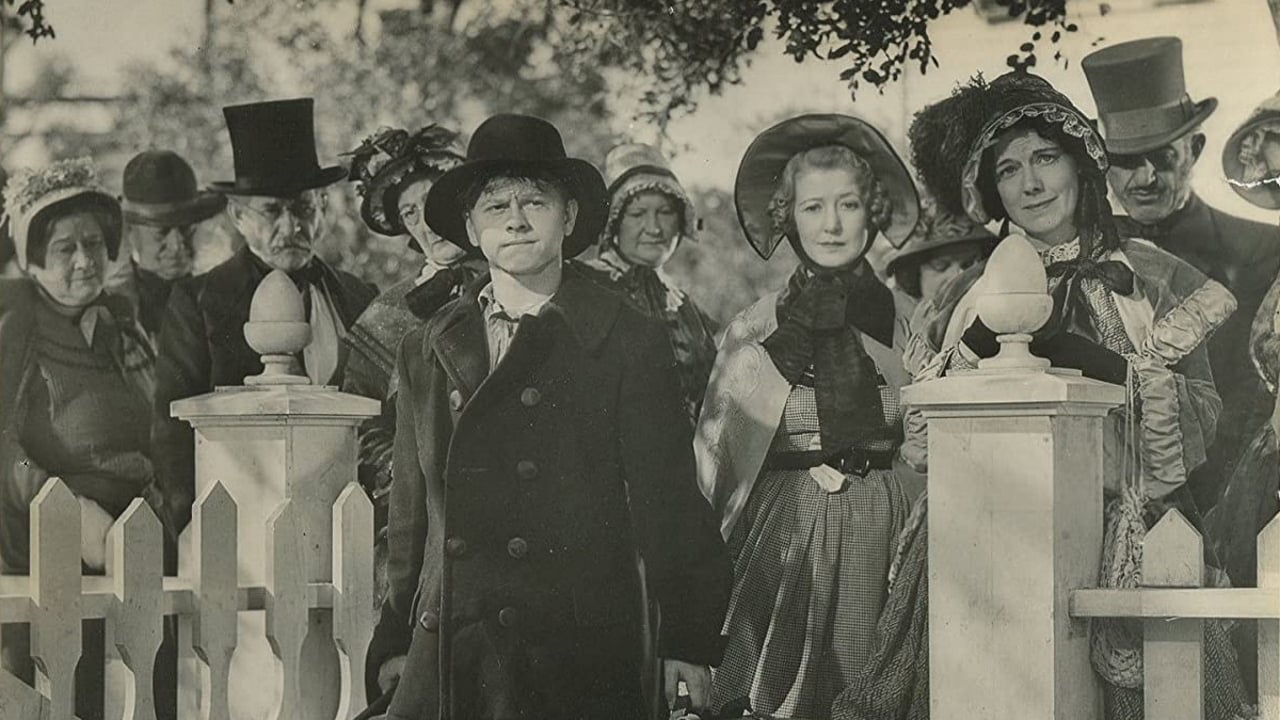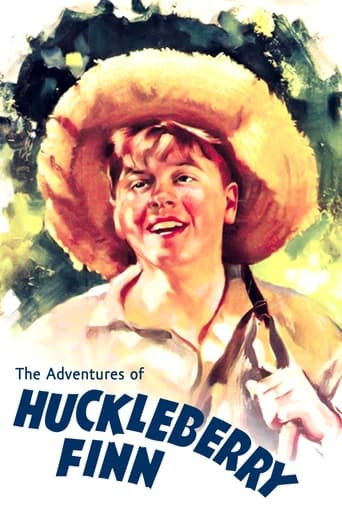

Yeah it is hard not to notice Mickey Rooney and a bit of Andy Hardy leaks through. I don't know any movie that can capture Mark Twain total wit, The only ilk of that type are a few Shakespeare movies. This later complaint coming from stuff shirts 1939 critics. What this movie makes you want to do is read the book, which is a good thing. This movie was about 100 pages of script, the book 400. If Twain could have written it in 100 pages he would have.Why anyone thinks you can do a verbatim reproduction of a book is beyond me. Look at Gone with the Wind, or the modern book The Shining. The Shining totally fails as a movie, both releases, as the book is a more richer story. Slight spoiler for the Shining follows. The first Shining move especially because of the ending and ignoring the hotel's furnace problem which is an important thread in the book.Rex Ingram as Jim should have at least been nominated for a best supporting actor. He was the glue in the film. This is just a good classic golden age movie.
... View MoreEven though 14-year-old Huckleberry Finn stole, smoked, lied, cursed and was lazier than an old possum, he was still a likable sort of rascal who was always full of bull and yarns and home-spun advice for all of his gullible friends, and the likes.Released in 1939 - The Adventures Of Huckleberry Finn would the first of 4 screen adaptations that energetically tackled Mark Twain's novel (written in 1884) of the same name.Set in the year 1835 (where the action takes place in Missouri, along the Mississippi River), this decidedly average MGM production was still an entertaining and good-natured tale that I think was probably best suited for the enjoyment of a much younger audience than myself.Though far from being faithful to the novel (where the racism was toned-down considerably), The Adventures Of Huckleberry Finn starred the young, gung-ho actor, Mickey Rooney (who was 19 at the time) as the title character.Full of pep and energy, Rooney (like the rest of the cast) put in a sincere and believable performance which certainly helped to keep the story fresh and relatively interesting.This picture's story focuses in on Huck's raft trip down the Mississippi, accompanied by Jim, a negro slave running away from being sold. Together these 2 strike a bond of friendship as they inevitably find themselves led through some harrowing events and hair-raising adventures.
... View MoreThis movie is perfect for the nations #1 box office star of 1939. No wonder the public adored him! Mickey Rooney simply stated is the best actor that has ever lived. Mickey gives a down to earth and lovely performance.!!! The movie is very true to the book. If you loved the book, you will love this movie. It's wonderful!!!!!! Another great movie that was perfect for Mickey Rooney was Young Tom Edison. If you love him as Huck, then check out Young Tom Edison! Another Blockbuster performance by the MASTER performer. Mickey Rooney, may you live on in the hearts of all who love you! Also for your Rooney fans check out Boy's Town and The Human Comedy. The Andy Hardy series are also terrific God Bless you, and I love you Mickey!
... View MoreI am surprised that there is no other review for this movie and I am the first to post my opinion on this box office hit of 1939, a top 20 hit of its year. When I sat down to watch this adaptation of the famous Mark Twain novel, I knew the running time was under 90 minutes so I did not expect to get the full book which I have read but the cliff notes version which I have also read. But no, Louis B. Mayer just had to give it the MGM cornball effect with scenes which are not in the novel and which change the meaning and transformation of Huck's character. Mickey Rooney, the biggest child actor the movies have ever heard, and in my opinion, also the best it has had brings one of those flawless performances to the role. Rex Ingram makes for a good runaway slave Jim and the other performances are fine. Direction is pendant in the hands MGM journeyman - that is not a craftsman, not an auteur, imagination insignificant, camera angles; perfunctory, directing actors; left to your own devices - Richard Thorpe who had a long and healthy career in Hollywood. You wonder why? The first half does feel like a cliff notes version as the scenes skip through have a general lethargic pace but keeps your attention because the story is good anyway. The changes involve the capture of Jim and Huck's injury and the resolution of the aforementioned events. It is not what happens and tongue-in-cheek ending changes the message of Twain's classic. I won't say I didn't enjoy it. I just mean if you are going to alter a classic, you'd better come up with something better.
... View More